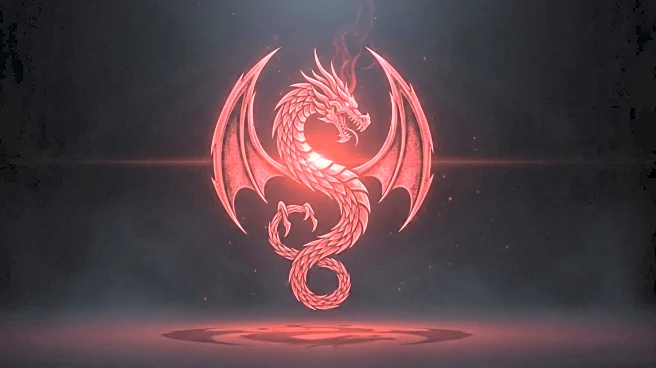What is the story about?
What's Happening?
At the New York Comic Con, screenwriter Jeremy Slater announced that Mortal Kombat III is officially in the works. Slater, who wrote the script for Mortal Kombat II, revealed that he has been hired to begin writing the next installment due to the positive reception and anticipation surrounding the franchise. Mortal Kombat II, originally set for a fall 2025 release, has been rescheduled to May 16, 2026, to capitalize on its momentum as a summer blockbuster. Director Simon McQuoid explained the delay as a strategic move to enhance the film's impact. The panel featured cast members Karl Urban, Adeline Rudolph, Tati Gabrielle, and Martyn Ford, who are reprising their roles alongside returning actors from the first movie.
Why It's Important?
The announcement of Mortal Kombat III signifies the franchise's strong fanbase and the confidence of New Line Cinema and Warner Bros. in its continued success. The decision to push Mortal Kombat II's release to summer 2026 highlights the strategic planning to maximize box office performance. This development is crucial for the entertainment industry, as it reflects the growing trend of leveraging popular franchises to drive cinematic success. The involvement of high-profile actors and the anticipation for the sequel could lead to significant economic gains for the studios involved, as well as increased engagement from fans worldwide.
What's Next?
With Mortal Kombat III in the early stages of development, fans can expect more updates and promotional content leading up to the release of Mortal Kombat II in 2026. The franchise's expansion may also lead to additional merchandise, spin-offs, and collaborations, further solidifying its presence in the entertainment industry. Stakeholders, including the studios and cast members, will likely focus on maintaining the franchise's momentum and exploring new creative directions to keep audiences engaged.
Beyond the Headlines
The Mortal Kombat franchise's success underscores the cultural impact of video game adaptations in film. It highlights the potential for cross-media storytelling and the importance of fan engagement in driving franchise longevity. The strategic release timing and development of sequels reflect broader industry trends in maximizing franchise value and audience anticipation.














